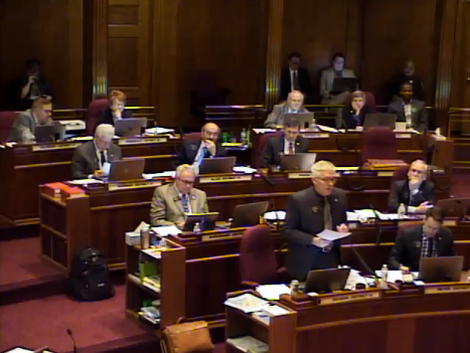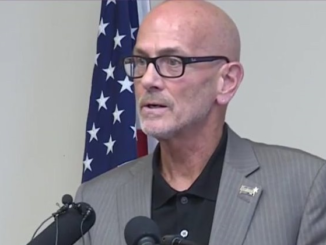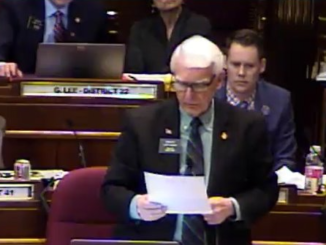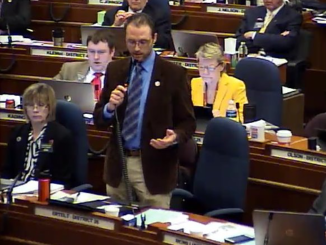
Last Friday the Senate defeated Rep. Kathy Skroch’s (R – District 26) House Bill 1435. As originally proposed, the bill would have forced school districts to hold bond votes during a general election. Unfortunately, the bill was amended by the Senate Education Committee to something quite different.
As amended and carried to the Senate floor, the bill would have simply changed the ability of school districts to hold successive bond votes from every three months to every five months (or 150 days). A "cooling off period" is what they call it.
Senator Kyle Davison (R – District 41) carried the bill to the floor as it came out of committee with a 4-2 Do Not Pass recommendation. He argued that passing such a bill would hamper school districts’ ability to propose additional bond votes in time for construction season. He pointed out that most school districts have a Plan A and a Plan B.
While Senator Davison’s assessment is correct – most districts do have a Plan A and a Plan B – that is part of the problem. Districts are prone to propose often unnecessary and expensive Plan A’s. If they get voted down, then they come right back with the Plan B. The idea, though not always admitted, is often to wear down the taxpayer into finally submitting to the proposals. Why shouldn’t school districts propose their best and most essential plan the first time? Heaven forbid should efficiency be an expectation.
Of course, another problem is that school districts love to utilize special elections for these votes. Special elections typically have extremely low voter turnout, which favors the districts who often have little problem getting hundreds (sometimes thousands) of district employees out to vote in favor of their proposals.
For example, as Point of View’s Chris Berg reported, the recent Fargo school bond vote had a total of 8,598 votes. Fargo Public Schools has a total of 3,208 employees. That means all the school had to do was get employees and their spouses out to basically cinch up the "Yes" vote. As it turns out, there was a total of 6,324 "Yes" votes.
So, without surprise, the Senate voted 12 – 35 to stick with the status quo and allow school districts to continue as they are. And who is the loser? The taxpayer. Not only do the school bond votes cost additional dollars to hold – especially if there’s a successive proposal – but they often end up in higher taxes as a result of the vote too. In Fargo’s case, because of low voter turnout, just 5% of of the city’s voters determined the tax increase for everyone owning property.
The ultimate burden rests on the taxpayers to push back against these school bond votes. The only relief and protection that will come will be from people speaking at the ballot box. While it’s the wearisome way, it’s the only way, because the legislature is currently unwilling to offer little, if any, protection in favor of the taxpayer.
Source:
1. http://www.valleynewslive.com/content/misc/Final-View-SHOCKING-numbers-about-the-Fargo-school-mill-levy-vote-and-how-much-it-cost-you-415734143.html





